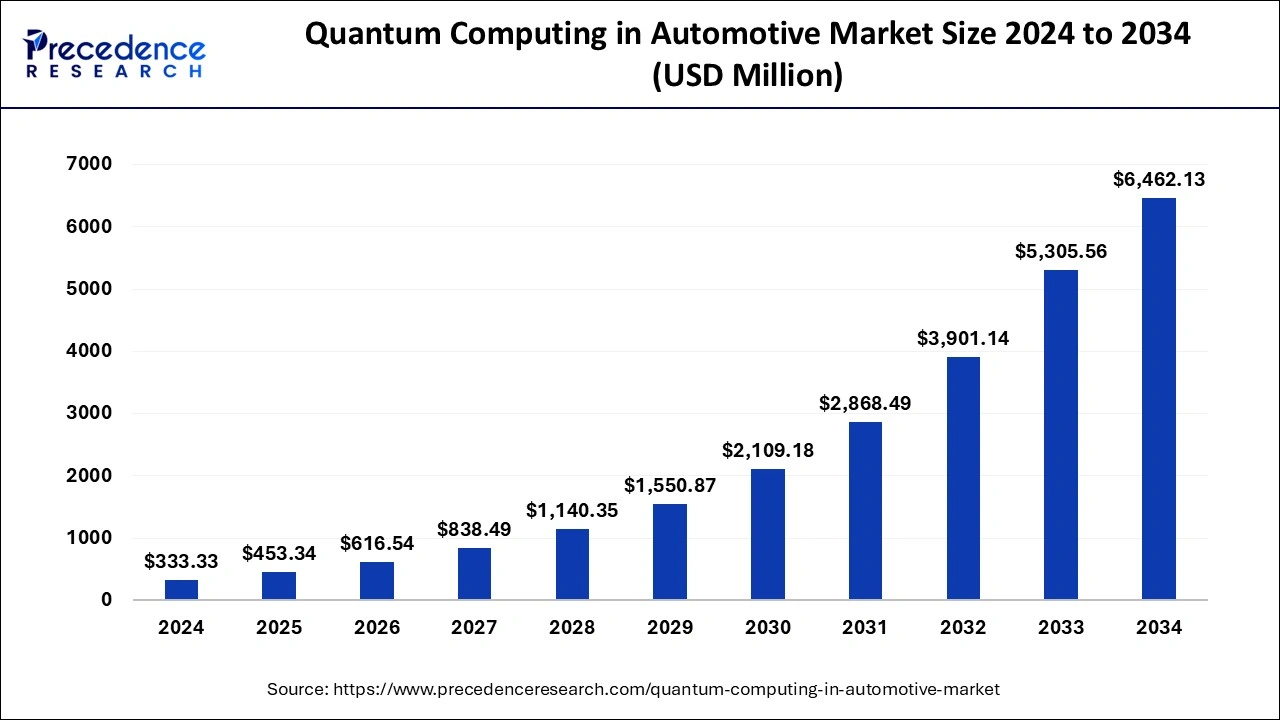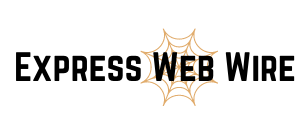The global quantum computing in automotive market size reached USD 245.10 million in 2023 and is projected to attain around USD 5,305.56 million by 2033, expanding at a CAGR of 36% from 2024 to 2033.
Key Points
- Asia Pacific led the market with the biggest market share of 41% in 2023.
- North America is observed to be the fastest growing region in the market during the forecast period.
- By component, the software segment held the largest market share in 2023.
- By deployment, the cloud segment has accounted for more than 74% of the market share in 2023.
- By application, the routing and traffic segment is poised to dominate due to the traffic congestion is a significant challenge.
- By the stakeholders, the automotive Tier 1 and Tier 2 supplier’s segment is positioned for rapid growth.

The Quantum Computing in Automotive Market is rapidly evolving, driven by the intersection of two cutting-edge fields: quantum computing and automotive technology. Quantum computing holds the promise of revolutionizing the automotive industry by enhancing computational capabilities, enabling complex simulations, optimizing supply chain logistics, and advancing autonomous vehicle development. This nascent market is characterized by a blend of traditional automotive players, technology firms, and startups aiming to harness the potential of quantum computing to address industry challenges and drive innovation.
Get a Sample: https://www.precedenceresearch.com/sample/4146
Growth Factors
The growth of the Quantum Computing in Automotive Market is fueled by several factors. First, the increasing complexity of automotive systems, such as advanced driver assistance systems (ADAS) and autonomous vehicles, necessitates more powerful computational tools, which quantum computing can provide. Second, rising demand for efficient energy management, predictive maintenance, and optimization of manufacturing processes in the automotive sector creates opportunities for quantum computing applications. Additionally, government initiatives and investments in quantum research and development further stimulate market growth.
Region Insights
The adoption of quantum computing in the automotive industry varies across regions. North America leads the market, driven by the presence of major automotive manufacturers, technology hubs, and significant investments in quantum research. Europe follows closely, with initiatives such as the European Quantum Communication Infrastructure (EuroQCI) and collaborations between automotive giants and research institutions driving innovation. Asia-Pacific showcases increasing interest, particularly in countries like Japan and China, supported by government funding and partnerships with academia and industry.
Quantum Computing in Automotive Market Scope
| Report Coverage | Details |
| Growth Rate from 2024 to 2033 | CAGR of 36% |
| Global Market Size in 2023 | USD 245.10 Million |
| Global Market Size in 2024 | USD 333.33 Million |
| Global Market Size by 2033 | USD 5,305.56 Million |
| Largest Market | Asia Pacific |
| Base Year | 2023 |
| Forecast Period | 2024 to 2033 |
| Segments Covered | By Component, By Application, By Deployment, and By Stakeholders |
| Regions Covered | North America, Europe, Asia-Pacific, Latin America, and Middle East & Africa |
Quantum Computing in Automotive Market Dynamics
Drivers
Several drivers propel the Quantum Computing in Automotive Market forward. The quest for improved safety, efficiency, and sustainability in vehicles incentivizes the integration of quantum computing solutions to enhance simulation capabilities for crash testing, aerodynamics, and materials science. Moreover, the pursuit of competitive advantage motivates automotive companies to leverage quantum algorithms for predictive analytics, supply chain optimization, and vehicle design optimization, fostering innovation and differentiation in a crowded market.
Opportunities
The Quantum Computing in Automotive Market presents vast opportunities for stakeholders. Collaboration between automotive manufacturers, quantum computing experts, and software developers can lead to the creation of tailored solutions addressing industry-specific challenges. Furthermore, exploring novel applications of quantum computing, such as quantum sensing for autonomous vehicles and quantum cryptography for secure communication, opens new avenues for growth and differentiation. Additionally, the emergence of quantum computing-as-a-service (QCaaS) models democratizes access to quantum resources, enabling smaller players to participate in innovation.
Challenges
Despite its potential, the Quantum Computing in Automotive Market faces several challenges. The nascent stage of quantum computing technology poses limitations in terms of scalability, stability, and error correction, hindering its widespread adoption in automotive applications. Additionally, the shortage of skilled quantum computing professionals and the high costs associated with quantum hardware and software development present barriers to entry for smaller automotive companies. Moreover, regulatory uncertainty and concerns regarding data privacy and security pose challenges to the implementation of quantum solutions in the automotive sector.
Read Also: Artificial Intelligence (AI) Infrastructure Market Size, Growth, Report 2033
Competitive Landscape
The Quantum Computing in Automotive Market features a dynamic competitive landscape characterized by collaboration and competition among automotive manufacturers, technology firms, and startups. Established players such as Volkswagen, Toyota, and BMW are actively exploring quantum computing applications through strategic partnerships with quantum computing providers and research institutions. Simultaneously, startups and niche players are emerging, focusing on specialized quantum algorithms and software solutions tailored to the automotive industry’s needs. This competitive environment fosters innovation and drives the development of diverse quantum computing applications in the automotive sector.
Quantum Computing in Automotive Market Recent Developments
- In January 2023, PASQAL introduced a pulsar studio specifically designed with no-code development platform for neutral atoms quantum computers. Intriguing part of this is pulsar studio can simulate the quantum registers and design pulse sequence with no prior knowledge of coding.
- In September 2023, Rigetti & Co, LLC launched QCS on azure platform of Microsoft with public preview option. They have introduced two types of superconducting quantum processors to all azure quantum users for developing the quantum applications along with execution.
Quantum Computing in Automotive Market Companies
- Accenture plc (Ireland)
- IBM Corporation (US)
- Microsoft Corporation (US)
- D-wave systems, inc. (Canada)
- PASQAL (France)
- Terra Quantum (Switzerland)
- Rigetti & Co, LLC (US)
- IONQ (US)
- Atom Computing Inc (US)
- Quantinuum Ltd. (US)
- Zapata Computing (US)
- Xanada Quantum Technologies Inc (Canada)
- Anyon Systems (Canada)
- Alpine Quantum Technologies (Austria)
- Multiverse Computing (Spain)
- Avanetix (German)
Segments Covered in the Report
By Component
- Software
- Hardware
- Services
By Application
- Battery Optimization
- Material Research
- Route Planning and Traffic Management
- Autonomous and Connected Vehicles
- Production Planning and Scheduling
- Others
By Deployment
- Cloud
- On-premises
By Stakeholders
- OEM
- Automotive Tier 1 and 2
- Warehousing and Distribution
By Geography
- North America
- Europe
- Asia Pacific
- Latin America
- Middle East and Africa
Contact Us:
Mr. Alex
Sales Manager
Call: +1 9197 992 333
Email: sales@precedenceresearch.com
Web: https://www.precedenceresearch.com
Blog: https://www.uswebwire.com/
